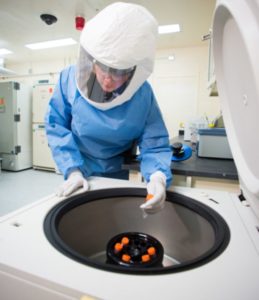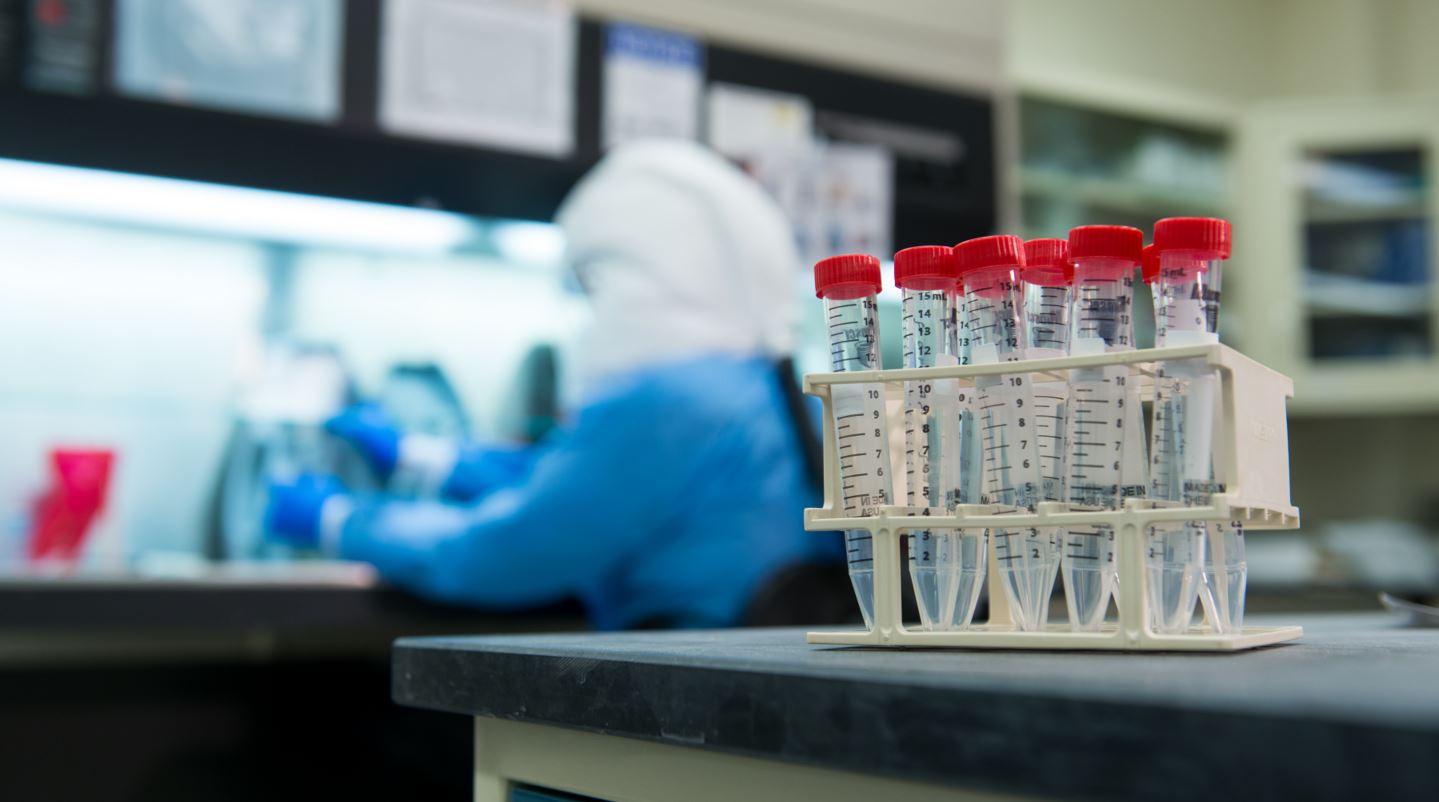Biosafety Levels Ensure Safety Protocols
Underscoring our capabilities for addressing global outbreaks, MRIGlobal has a long history of operation, maintenance, and sustainment of biological safety laboratories, including our operational pathogen detection and diagnostic surveillance programs, and associated research, development, testing & evaluation programs.
In scientific laboratories, biosafety levels (BSL) are an important set of specific guidelines to prevent the spread and exposure of biological hazards. These laboratories are assigned a biosafety level 1-4, based on the agents or organisms being researched in them and the resulting protocols implemented to keep their teams and the public safe. Regardless of level designation, all labs should have some form of biosafety and associated training. Biosafety levels, in combination with risk assessments, determine which combination of safety equipment and procedures are crucial for handling pathogenic materials in which labs. An understanding of laboratory biosafety levels can be beneficial in establishing appropriate protocols.

Our team works in labs that are designated as BSL-1, BSL-2, BSL-2+, ABSL-2, BSL-3, BSL-3+, and ABSL-3+, with each requiring its own protocols and engineering controls. The + indicates that the lab has practices, procedures, or facilities that are enhanced beyond the designation below it. For instance, in BSL-2+, respiratory protection and following BSL 3 procedures are required. This enhanced designation may be abbreviated as BSL-2 enh instead of BSL-2+. ABSL indicates that the lab is suitable for working with laboratory animals.
In each of these labs, biosafety training and risk assessment are crucial for maintaining global health and safety. While a lab may follow all the necessary protocols and guidelines, a biosafety expert can help fill in gaps and optimize productivity and efficiency. Regardless of the biocontainment level, understanding general biosafety principles for a safe laboratory environment is the foundation of a lab’s success.
The experience of our team and immediate access to these world-class labs enables us to start working with emerging infectious diseases rapidly, as we did with SARS-CoV2 (COVID-19) beginning in early 2020. We are also registered to work with select agents and toxins, including a subset of tier 1 select agents, such as highly pathogenic avian influenza, anthrax, and monkeypox virus. This ability to work with a broad range of pathogens supports customers with specific testing of vaccines or therapeutics.

Getting Started at MRIGlobal
Contact MRIGlobal to further understand our work in infectious diseases. We offer a broad portfolio of infectious disease testing assays and capabilities across diagnostic disciplines, from screening and diagnosis to genotyping, therapy, and monitoring. Those seeking analysis of infectious disease tests can trust in our breadth of experience and knowledge – not just on the subject matter, but FDA protocols as well.
To learn more about the work we’ve done or how we can help you, contact us today. If you are part of an agency, business, or academic institution seeking assistance with a project, use our Project Quote Tool to get started.
Sign up for our newsletter
Sign up for the MRIGlobal newsletter! It’s the best way to get the latest updates in the world of applied scientific engineering research delivered directly to your inbox.

